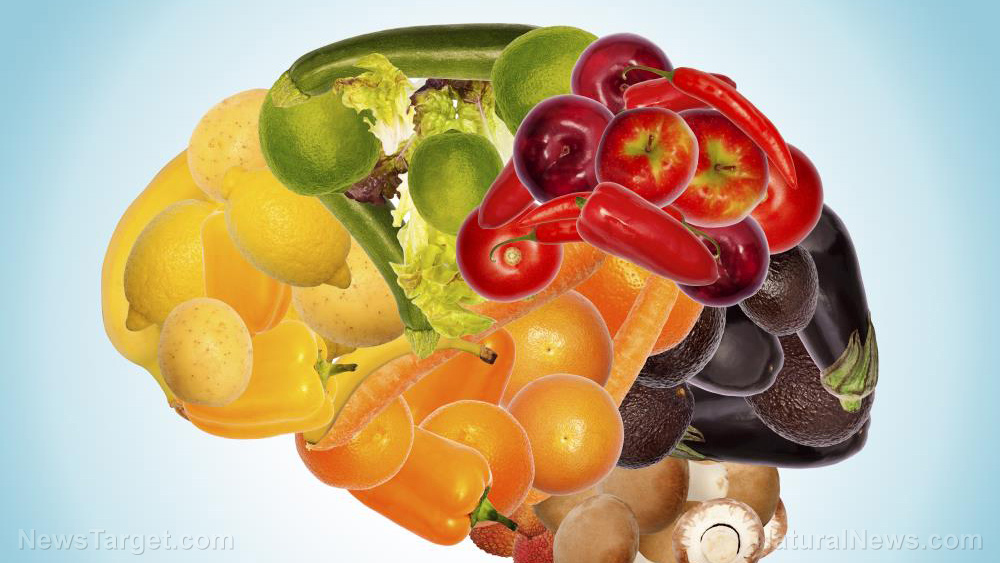
Advertisement
We know that a balanced diet filled with fruits, vegetables and whole grains sets the foundation for a healthy body and a healthy brain. But in order for your brain to function properly and stay healthy, you need to get more of certain nutrients from foods. Doing so will help keep your mind sharp even as you age.
Below are three key nutrients for better brain power:
1. Vitamin C
Your brain has about 86 billion cells called neurons that communicate with each other through chemical messengers. Also known as neurotransmitters, these chemicals transmit messages from neurons to muscles. They also affect your ability to focus and remember and even influence your mood.
Research shows that vitamin C is essential for the production of neurotransmitters. It also helps make you happy. A recent study showed that people who supplemented with vitamin C reported feeling happier after a week than those who didn’t take vitamin C supplements.
The reason for this is that your brain needs vitamin C to make neurotransmitters like dopamine and serotonin that regulate mood. Low levels of vitamin C, dopamine and serotonin are common among people with mood disorders like depression.
Plus, vitamin C may help protect your neurons from damage and oxidative stress caused by unstable molecules called free radicals. High levels of oxidative stress are usually linked to neurodegenerative diseases, such as Alzheimer’s disease, Parkinson’s disease and Huntington’s disease.
In addition, vitamin C is a powerful detoxifier. It crosses your blood-brain barrier to remove toxic heavy metals that may have accumulated there from things like dental fillings and contaminated seafood.
Below are the best food sources of vitamin C:
- Citrus fruits (e.g., oranges, grapefruits)
- Berries (e.g., strawberries, blueberries)
- Cantaloupe
- Kiwi fruit
- Mango
- Pineapple
- Watermelon
- Bell peppers
- Potatoes (sweet and white)
- Cruciferous vegetables (e.g., broccoli, cabbage)
- Leafy green vegetables (e.g., spinach, collard greens)
The Department of Agriculture (USDA) advises getting 75–90 milligrams (mg) of vitamin C each day from your diet. You may also supplement with ascorbic acid.
2. Vitamin D
While widely known as a nutrient, vitamin D is a hormone that your body produces when sunlight hits your skin. Recent studies show that vitamin D has profound effects on your brain during all stages of life.
For example, pregnant women are encouraged to eat foods with vitamin D or to spend time outdoors when it is sunny out because vitamin D supports fetal brain development.
In teenagers and adults, vitamin D helps regulate mood and improve memory. Vitamin D also helps reduce your risk of developing dementia or Alzheimer’s disease later in life.
Spending some time outdoors when the sun is out should be enough to raise your vitamin D levels. But if you have low levels of this nutrient, you need to eat more foods rich in vitamin D or take supplements. The National Institutes of Health (NIH) advises getting 10–20 micrograms (mcg) of vitamin D each day.
Take note that few foods naturally contain vitamin D. These include:
- Egg
- Tuna
- Trout
- Salmon
- Mushrooms
- Cod liver oil
- Beef liver
- Chicken
- Cheese
3. B Vitamins
Three B vitamins – B6, B9 and B12 – are often linked to brain health. Many studies show the various roles these vitamins play to support the health of your brain.
For instance, a study by researchers at the University of Oxford found that taking all three B vitamins together reduced brain atrophy or the loss of brain cells. It also improved brain function and significantly reduced shrinkage in the area of the brain most affected in people with Alzheimer’s disease.
Researchers believe that vitamins B6, B9 and B12 benefit your brain by reducing the levels of homocysteine, an amino acid present in your blood. You get homocysteine from eating meat as well. Having high levels of homocysteine can put you at risk of developing serious health problems, such as Alzheimer’s disease, heart disease and kidney failure.
B vitamins also aid in the production of serotonin, dopamine and gamma-aminobutyric acid (GABA). If you have an imbalance of these major brain chemicals, you risk experiencing mental health problems, such as depression, anxiety, low self-esteem and chronic stress. You could also have trouble falling asleep.
B vitamins can be found in abundance in animal foods. This is why most vegans are deficient in B vitamins. To raise your levels of B vitamins and improve brain health, eat foods rich in B vitamins or supplement with vitamin B complex. It delivers most, if not all, of the eight B vitamins.
Below are some of the best food sources of B vitamins:
- Leafy green vegetables (e.g., romaine lettuce, turnip greens)
- Citrus fruits (e.g., tangerine, key lime)
- Legumes (e.g., chickpeas, lentils)
- Poultry
- Banana
- Seafood
- Seaweed
- Whole grains
- Grass-fed beef
- Green algae (e.g., chlorella, spirulina)
If you’re on a vegan or vegetarian diet, consult a holistic nutritionist to get the right dosage of the supplements you need.
Your brain needs more of certain nutrients to stay sharp and healthy. Add more foods rich in the nutrients listed above to your diet to promote optimal brain health and enjoy better protection against brain diseases in your golden years.
Sources:
Advertisements







